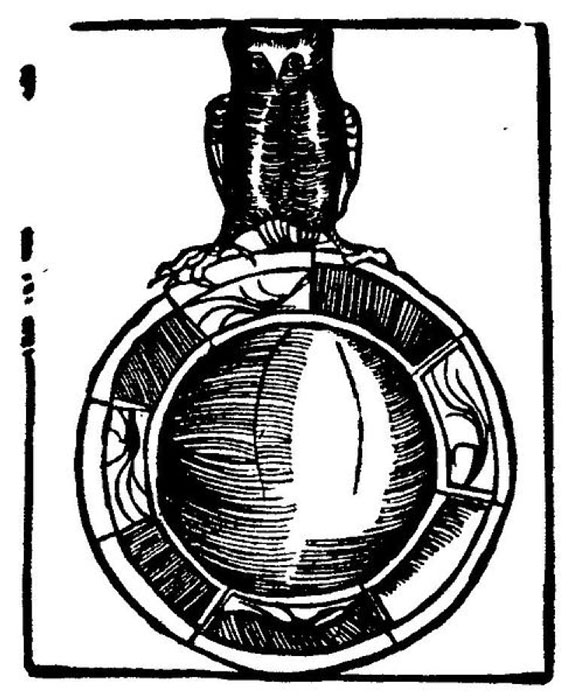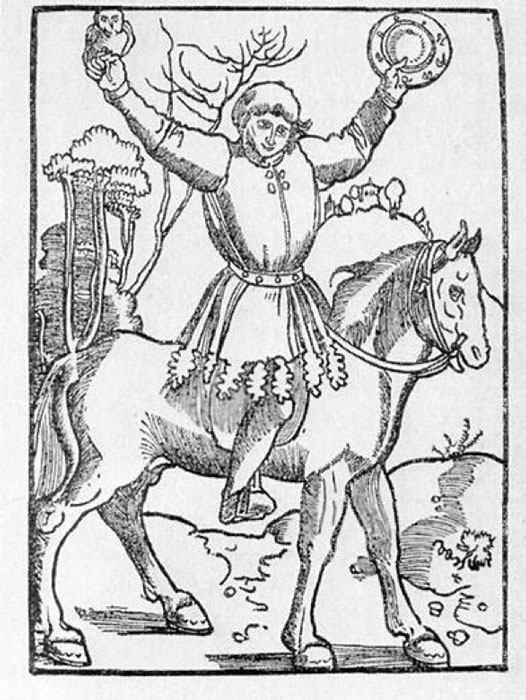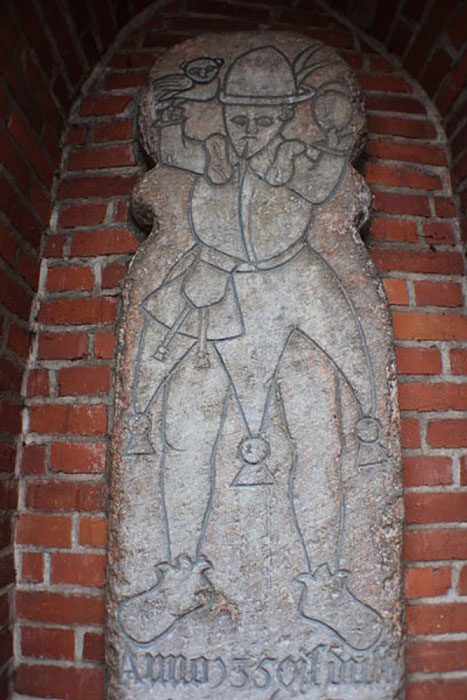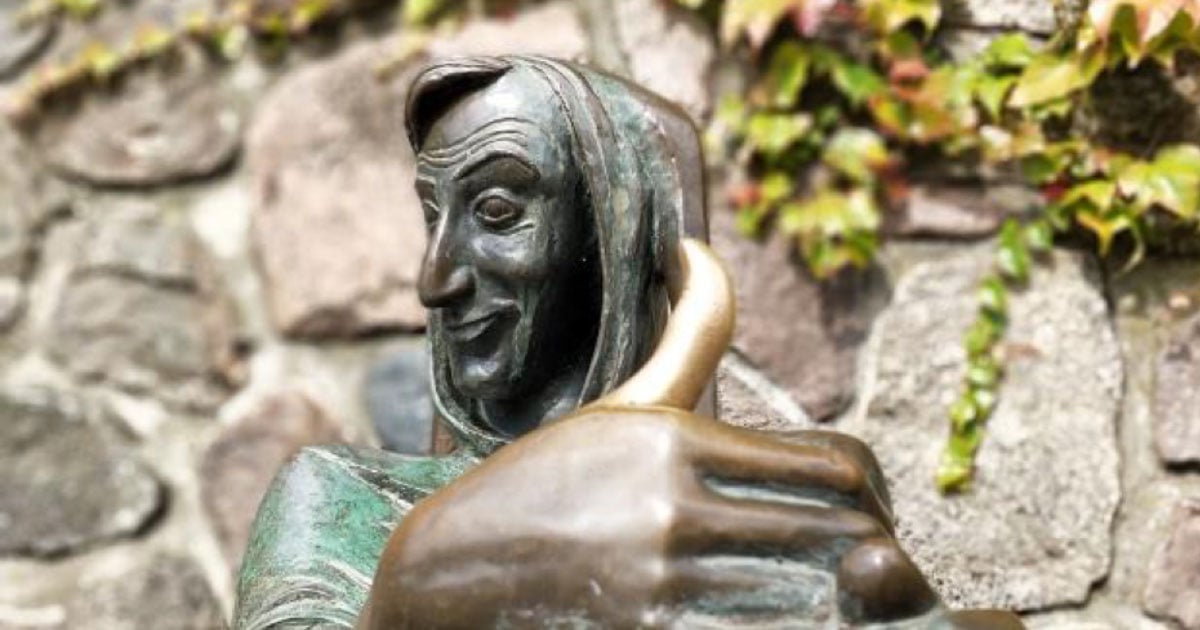Till Eulenspiegel: The Crude Pranks and Hilarious Hi-jinks of a 14th Century German Fool
Till Eulenspiegel is a notable character from German folklore and the protagonist in a number of folktales. Most recognized for his trickery, it may surprise people to know that Till Eulenspiegel could actually be based on a real person who lived during the 14th century. But the most popular tales of Till Eulenspiegel were written during the 16th century and may have been written with an eye on social criticism wrapped in humor.
A Man of ‘Wise Reflection’?
The character’s surname, ‘Eulenspiegel’, may be translated literally to mean ’owl glass’ or ‘owl mirror’. Metaphorically speaking, this name has been interpreted to mean ‘wise reflection’. Considering that Eulenspiegel plays the part of the fool, he serves as a mirror by which society could judge itself. According to another interpretation, the owl was regarded as the Devil’s bird during the Middle Ages, thus, his tales could be seen as lessons for the reader to face his/her own foolishness and shortcomings.

Owl-and-mirror rebus from the depiction of Eulenspiegel's tombstone and epitaph in the 1515 edition. (Public Domain)
The Real Till Eulenspiegel
It has been suggested that Till Eulenspiegel was based on a real person. He is believed to have been born in Kneitlingen, Brunswick, and died in Mölln, Schleswig-Holstein, in 1350, after succumbing to the Black Plague. His alleged tombstone can be found in that German city and has been known since the 16th century. Till traveled extensively across the Holy Roman Empire, Denmark, Poland, and Italy, during which many of his mischievous adventures take place.
- Danila Prepeleac – The Man Who Tricked the Devil
- Amoral Tricksters that Enhance World Mythology and Entertain Cultures
- Practical Joke or Practicing Restraint? The Drinking Vessel That Turned Greedy Guests into Wet Blankets

The prankster Till Eulenspiegel, depicted with owl and mirror (title page of the Strasbourg edition of 1515). (Public Domain)
Even as a child, Till Eulenspiegel was full of mischief. For example, in one tale, the neighbors of the Eulenspiegels complained to Till’s father that his young son was a prankster. When the older Eulenspiegel (whose name, incidentally, was Claus) talked to his son about the issue, Till suggested that they go on a horse ride together, during which he would sit behind his father quietly. The boy also mentioned that the townspeople would nevertheless lie and complain about him.
During the ride, though sitting quietly, Till exposed his behind to the townspeople, causing them to complain. His father, however, was not able to see what his son was doing, and believed he had been sitting quietly. Likewise, when Till sat in front of his father, he remained silent, but began making faces to all he encountered on the way. Once again, the people complained, though Till’s father was unaware of his son’s pranks. Claus was convinced of his son’s innocence and thought that Till was an unfortunate child.

During the ride, though sitting quietly, Till exposed his behind to the townspeople, causing them to complain. (Public Domain)
Till Eulenspiegel’s Pranks
Although the stories say Till Eulenspiegel played tricks on people mainly out of mischief, at times he did so in order to gain money, food, or vengeance. Here is one belonging to the latter. In this tale, Till traveled to Cologne, where he stayed for several days at an inn. During this time, he realized that the innkeeper was a crook and decided to find another place to stay. Till told this to the innkeeper in the evening, and the latter, when it was time to show the guests their lodgings, did not do so for Till. Instead, he was shown ‘a bench’, ‘sheets’, and ‘a pillow’, in the form of three farts by the innkeeper.

A German stamp depicting some of Till Eulenspiegel’s adventures. (Public Domain)
Till Eulenspiegel decided to repay the innkeeper with mischief of his own. In the morning, when it was time to leave, Till defecated inside the innkeeper’s folding table, covered it up, and told the innkeeper that he had arranged everything before he left. It was only at noon, when the innkeeper was preparing to serve lunch that he found out what Till had done. Instead of getting angry, however, the innkeeper invited Till back to get to know him better. They appreciated each other’s tricks so much that they became friends.

Till Eulenspiegel fountain in Mölln (1951). Source: Soenke Rahn/CC BY SA 3.0
Till Eulenspiegel’s Grave Reflects His Unusual Life
After Till’s death, his body was placed in a coffin made by the hollowing out a tree trunk, as per ancient custom. As the coffin was being lowered into the ground, the rope holding its bottom end broke, causing it to fall bottom first into the grave, and leaving the body in an upright position. It was decided to leave it that way, considering that as Till Eulenspiegel had lived an odd life, he should be buried in an odd way too. A special tombstone depicting an owl clutching a mirror marks Till Eulenspiegel’s grave. This marker has been known since the 16th century.
- Jokes and Pranks: Here is the April Fools’ Day Origin Story
- Cartographic Comedy in the 16th century: The Fool’s Cap Map of the World
- Legends of Spring Heeled Jack, the Uncatchable Demon of Victorian England

Upper half of "Eulenspiegel's tombstone" in Mölln, Schleswig-Holstein. (Soenke Rahn/CC BY SA 3.0)
Venting Frustration While Having a Laugh
The tales of Till Eulenspiegel were immensely popular in Germany, as well as in Denmark and Poland, when they were written during the 16th century. One of appeals of these stories is the fact that an individual is able to vent their frustration and get back at society through his character.
These tales were toned down overtime, so as to cater to more prudish standards. Nevertheless, they still served to amuse and remained popular. This may be seen, for example, in Richard Strauss’ tone poem, Till Eulenspiegel’s Merry Pranks, which was composed towards the end of the 19th century.

Scene from the Ballet ‘Till Eulenspiegel’, Manhattan Opera House, New York, 1916. (Public Domain)
Top Image: Till Eulenspiegel fountain in Mölln (1951). Source: CC0
By Wu Mingren
References
Ashliman, D. L., 2014. Breaking Wind: Legendary Farts. Available at: http://www.pitt.edu/~dash/fart.html
Kinnes, T., 2018. Till Owlglass Tales. Available at: http://oaks.nvg.org/till.html
Reed, S., 2016. Till Eulenspiegel, a Fool for all Seasons. Available at: http://blogs.bl.uk/european/2016/04/till-eulenspiegel-a-fool-for-all-sea...
Stein Collectors International, 2014. Till Eulenspiegel - The Merry Prankster. Available at: http://www.stein-collectors.org/library/articles/Eulenspiegel/Eulenspieg...
The Editors of Encyclopaedia Britannica, 2015. Till Eulenspiegel. Available at: https://www.britannica.com/topic/Till-Eulenspiegel-German-literature
Thomason, P., 2018. Richard Strauss - Till Eulenspiegel’s Merry Pranks. Available at: http://paulthomasonwriter.com/richard-strauss-till-eulenspiegels-merry-p...



















